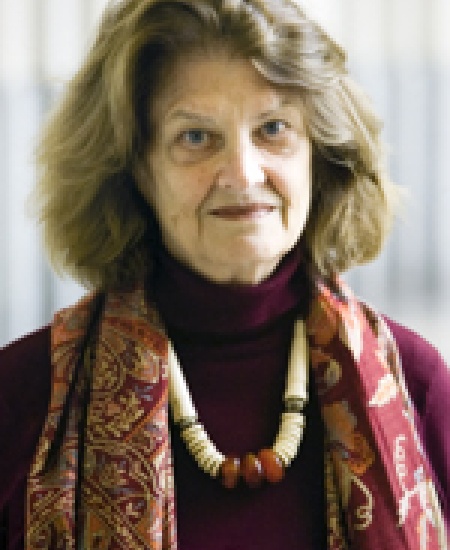I returned to Egypt for a visit, as I often do around this time. On New Year’s Eve my husband and I were wandering in the nearly empty streets of our Cairo neighborhood looking for a cyber café as our internet was down. When I saw two men pass by briskly carrying three huge boxes of pastries I thought of the merriment that was unfolding in houses, clubs, and restaurants and of the shouts of joy that would resound at the stroke of midnight. We hurried about our business to get home to our own quiet celebration.
Within hours, though, all hell broke out at a large Coptic church in the heart of Alexandria—ending twenty-one innocent lives and shattering peace and hope throughout the country.
There has been much written and spoken about the whys and wherefores, about possible global and local culprits with a dizzying range of motives: to ignite religious hatreds in order to divide and break Egyptian society, to strike a blow at the Egyptian state, to further polarize Muslims and non-Muslims globally. Some international media have pointed to sectarian strife they insist is a feature of Egypt. It cannot be denied that there are those who harbor ill feelings and hatred toward others outside their own religious or ethnic groups. It cannot be denied that there have been deadly sectarian attacks in the past, such as the Christmas day killing of Copts at a church in Nag Hammadi last year. Some are prone, or goaded, to go on the offensive, stirring the pot beyond the boiling point. Others respond in angry defense. And, frustrations are exacerbated by real economic, social, and political grievances.
To put everything down to sectarian strife, however, not only misses the point but can become an ingredient in the making of such disorder and division.
On Coptic Christmas, January 7th—which incidentally is an official national holiday in Egypt—Muslims, including many prominent figures, joined Copts in their church services. Christians and Muslims lined Cairo’s Qasr al-Nil Bridge shoulder to shoulder in a show of solidarity. In the media, we have heard Muslim and Coptic political and religious leaders, such as Shaykh Ali Gomaa, Grand Mufti of Egypt, condemn the attack and reach out to their fellow citizens. In their more private lives Muslims and Copts and other Christians are reaching out to each other as human beings and as Egyptians, putting a lie to the notion of rampant sectarianism.
At the same time, they also are not putting their heads in the sand and denying the distressing and sometimes—as just witnessed—deadly realities. Some international media say that “liberal” and “moderate” Muslims were joining Copts in peaceful demonstrations (The Washington Post). Why can’t the media simply say “Muslims”? As if Muslims can only be good or not troublesome if qualified as “liberal” or “moderate”?
Egypt’s Copts (who are ten per cent of the population), other Christians (whatever their percentage), and Muslims share a country, share cities, share neighborhoods, share buildings, and not infrequently share families. Egyptians, whatever their religion, have gotten along quite well—which is not to say there have never been tensions and violence, for there clearly have. It is also true that in recent years religious tensions have been fanned into flame, sometimes to lethal effect as on New Year’s Eve. Some think it is exaggerated to suggest that sectarian strife is endemic, and that the suggestion itself is an element in enflaming passions. Others think that it irresponsible not to forthrightly acknowledge that religious tensions can and are being politicized. Violence points to rips and ruptures and the ability of some to wreak murderous vengeance.
Yet it seems important also to recognize that a wider culture of unity and respect remains alive, hard as it is to do so at times like these. Many here think the time has long come when this culture must be actively preserved—before chances run out.


Margot, thanks for this piece. While I agree that it is important to point out the instances of unity and a tradition of co-existence of Christinaity/Copts/Muslims within Egypt and elsewhere in the Muslim world–it is also crucial for Muslim societies to realize and accept that whatever the external provocations, today there is indeed much sectarian strife within these countries and societies that underscores the increasingly alarming intolerance for which Muslims themselves have to take responsibility. Cant keep blaming the West forever–even as we acknowledge their hand in stirring the pot.
I was born to a Muslim father and Christian mother who was converted to Islam. At the age of 13 I was exposed to the horrors of war in Mindanao. It is profoundly difficult to be born and raised in an environment where violence is the order of the day – for the the next 4 years. At age 17 my parents decided to bring me to Manila to put me out of harm’s way so I can focus on my studies. I was a National Integration Study Grantee of the Philippine Government during my college days. I am author of Peace Imperative in the Philippines and The World Muslim Community Peace Plan in Mindanao. I have designed a peace process based on The Shahadah with its multi-dimensional aspects including politics. The World Muslim Community is the political component of this particular peace plan. It is an indispensable component in a peace plan involving Muslims as I will proceed to explain.
I hope we can exchange thoughts and ideas to make a better and peaceful world for our children and the next generations to come.
EDDIE A. MASORONG